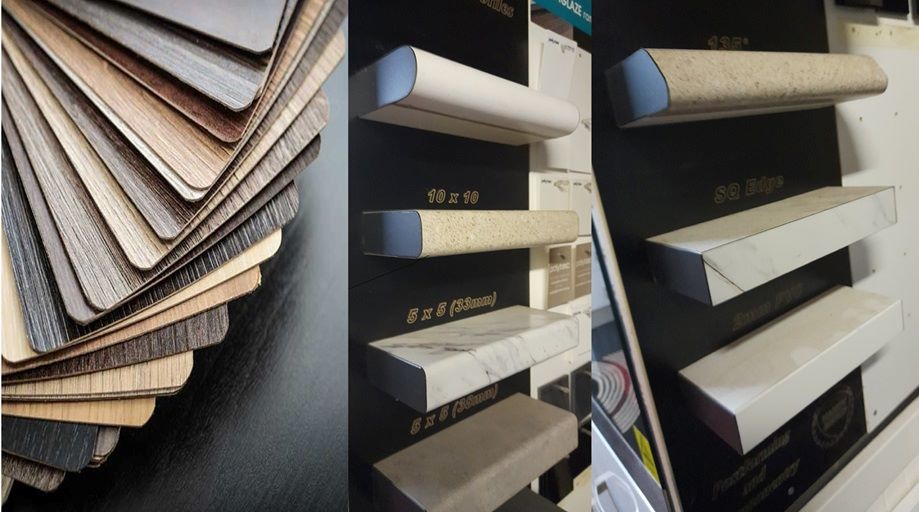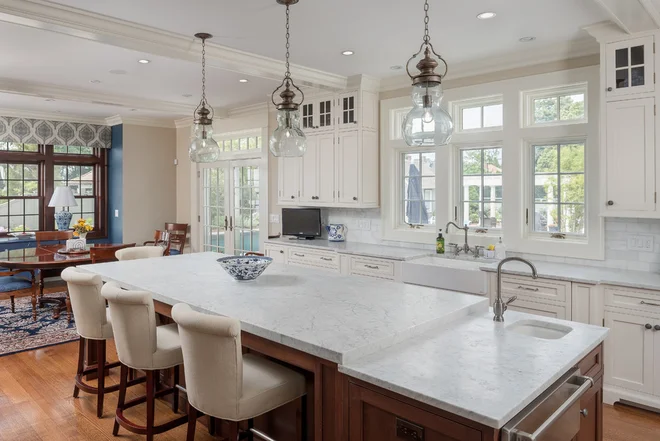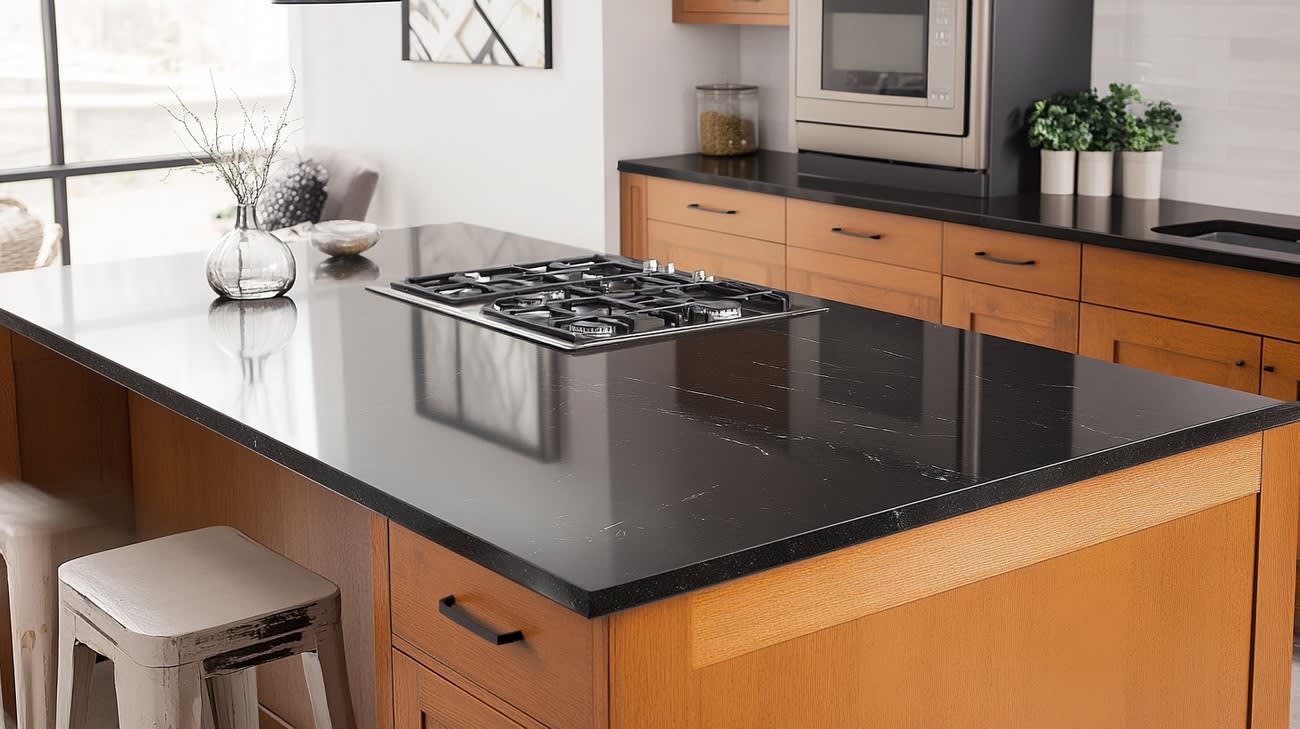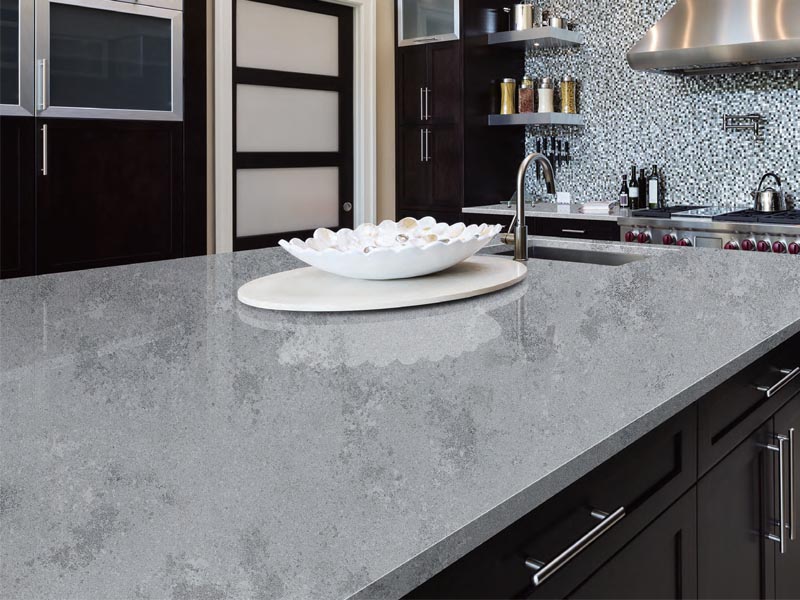Table of Contents
ToggleThe benchtop is undeniably the largest and most influential surface in any kitchen, acting as the foundation for your home’s aesthetic. Choosing the right stone benchtop colours is therefore one of the most critical decisions you will make during a renovation or new build. In Melbourne, where style often dictates home value, the benchtop colour must perfectly balance trend, functionality, and timeless appeal. It has to complement your cabinetry, manage daily wear, and set the emotional tone for the entire space.
This comprehensive guide breaks down the four most popular stone benchtop colours groups currently dominating the market, linking colour directly to the specific material (Marble, Granite, Quartz). We provide the expert guidance needed to select a durable, beautiful surface that will serve your home for decades.
The Core Palette: Brightness and Luxury in White Stone
To achieve maximum light, cleanliness, and a feeling of spaciousness, white benchtops are the clear winner. Your choice here depends entirely on whether you prioritize the authenticity of natural stone or the ease of maintenance.
White Marble (Natural Stone): Timeless Elegance and Authenticity
The iconic choice includes timeless white marbles like White Carrara Marble or Calacatta. These natural stones offer unique, intricate veining and luminous texture that cannot be perfectly replicated. White marble benchtops are highly sought after in Melbourne for lending a touch of authentic, inherited luxury to any space. While they require regular maintenance (sealing) and are prone to etching from acids, many homeowners view this development of patina as part of the stone’s story.
White Quartz (Engineered Stone): The Practical Solution
White Quartz (Engineered Stone) offers a look very similar to marble but boasts superior density and durability. Quartz is non-porous, meaning it never needs sealing and offers extremely high resistance to staining. This makes white quartz benchtops the perfect choice for busy family kitchens that require minimal maintenance without sacrificing a bright aesthetic.
Power and Depth: The Drama of Black and Dark Stone
When the goal is to create a striking visual anchor, especially in open-plan areas, the options lean heavily toward darker, grounding materials that maximize contrast and style.
Black Granite (Natural Stone): Unmatched Durability and Strength
The toughest choice: Black Granite is among the hardest, most heat-resistant, and most durable natural stones available. It ranges from uniform deep black (like Absolute Black) to granites that contain shimmering mineral flecks (Mica) that catch the light. Black granite benchtops are incredibly resilient to heat and scratching. They create stunning contrast when paired with pure white cabinetry.
Grey Quartz (Engineered Stone): Industrial Chic and Versatility
The Modern Choice: Grey Quartz spans a spectrum from soft, light grey to deep, almost charcoal tones. This colour group lends itself perfectly to the “Industrial Chic” aesthetic popular in many contemporary Melbourne renovations. Crucially, mid-toned grey stone benchtops are unparalleled in their ability to hide daily dust, crumbs, and fingerprints, making them arguably the most practical colour choice for high-use areas.
Connecting Colour to Commitment: Maintenance and Material
When selecting your benchtop, the specific material defines its long-term performance far more than the colour alone. The perfect stone benchtop colours must ultimately align with your lifestyle and your tolerance for maintenance.
Durability and Hardness
Marble is the softer stone (around 3-5 Mohs), prized for its natural veining but requires careful handling. Granite is significantly harder (6-7 Mohs) and resists scratching well. Engineered Quartz is consistent in density and hardness across all colors, offering peak durability without the need for periodic maintenance. Statistically, 85% of high-end kitchen remodels prioritize low maintenance, making quartz a favoured option (Source: Kitchen and Bath Design News).
Colour and Cleaning
- Dark Stone (Black Granite/Quartz): Excellent at hiding stains but clearly shows dust, flour, and white mineral streaks from water spots.
- Light Stone (White Marble/Quartz): Shows spills and grime easily, requiring immediate attention, but hides everyday dust particles well.
Conclusion: Find Your Perfect Stone Benchtop Colour in Melbourne
Choosing the right stone benchtop colours is a permanent decision that affects the entire feel of your home. Whether you opt for the crisp, luminous luxury of White Marble benchtops or the powerful durability of Black Granite, your choice should reflect your personal style and commitment to maintenance.
Are you ready to see these exquisite colours and materials brought to life?
Don’t wait to upgrade your kitchen. Contact the stone specialists at emporiumstone today to view our exclusive collection of premium stone benchtops, including the finest imported Marbles, Granites, and Quartz slabs, perfectly suited for your Melbourne home.
Frequently Asked Questions (FAQs)
Q1: Which stone benchtop colours show the least amount of dirt?
A: Mid-toned grey stone benchtops or stone with subtle, speckled patterns (common in granite) are the best at minimizing the visibility of dust, crumbs, and fingerprints.
Q2: Why is White Marble more expensive than White Quartz?
A: White Marble is priced higher because it is a natural, finite resource that must be quarried and imported as a slab, making its supply limited and its veining unique. Quartz is manufactured, allowing for higher consistency and predictability in cost.
Q3: What is the most popular benchtop colour combination in Melbourne right now?
A: The most popular high-contrast combination is White Quartz benchtops (for practicality) paired with matte black or deep grey lower cabinetry and light natural timber flooring.
Q4: Is Black Granite safe to use outdoors?
A: Yes, Black Granite is an excellent choice for outdoor kitchens because it is a natural stone that is both highly UV-resistant (it will not fade) and extremely durable against heat and weather. Always ensure the specific grade you choose is rated for exterior use.






